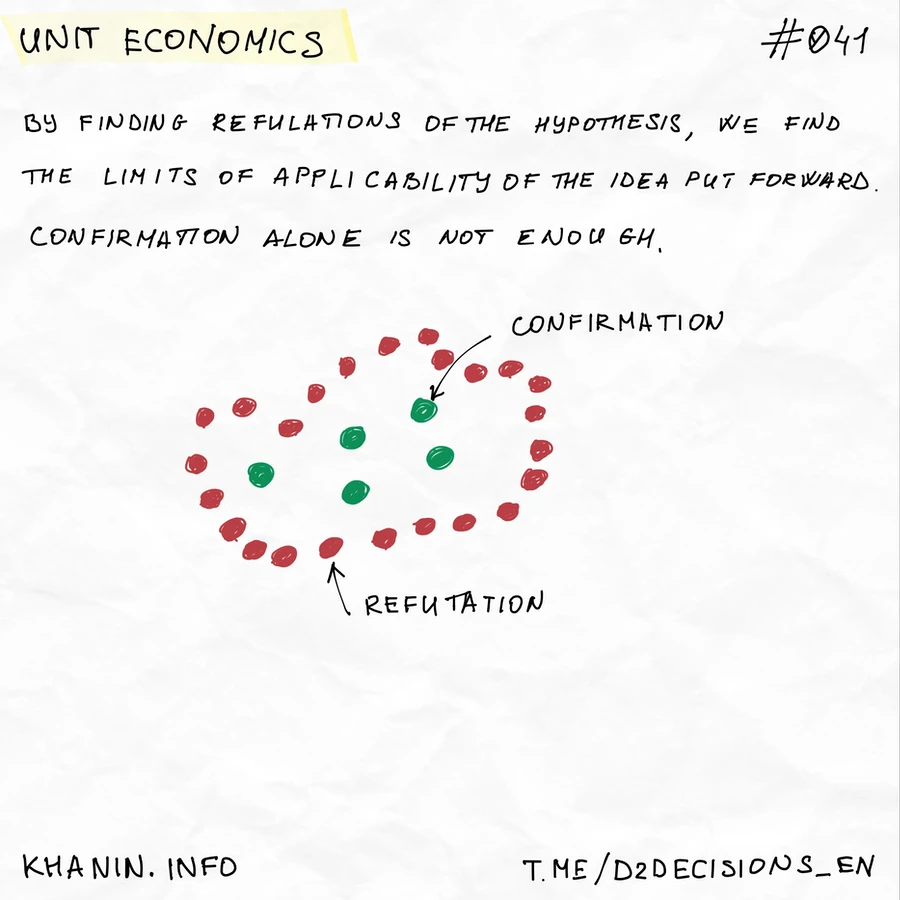It is essential to test hypotheses effectively

When testing a hypothesis, many people seek to find confirmation of their idea. They believe that a few examples that support the hypothesis are sufficient evidence to validate it. However, this is an error.
The confirmation found may be a random coincidence or a single example that does not reflect the whole picture. In order to test a hypothesis properly, it is essential to look for not only confirmations, but also instances where the hypothesis does not work. Refutations are often more valuable because they show the limits of applicability of an idea and help one understand where it is actually true.
Improving hypothesis testing methods
It is advisable to look for refutations, as the more situations in which a hypothesis is not confirmed, the better one can understand its limits.
It is essential to analyze results objectively and avoid becoming overly focused on the desire to "prove" the validity of your idea.
Please take context into account when testing the hypothesis. Run tests in different contexts to identify the hypothesis's strengths and weaknesses.
It is essential to thoroughly examine any potential refutations to ensure a comprehensive understanding of the hypothesis and its applicability.
To say thank you and show support for future content.
50€/annually
To gain access to commentary and content, please consider subscribing.
If you're already a customer, just log in.
we do not store your email, only the encrypted hash, which increases the security of your email.